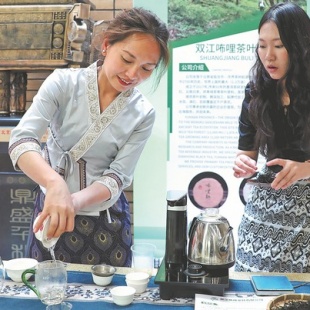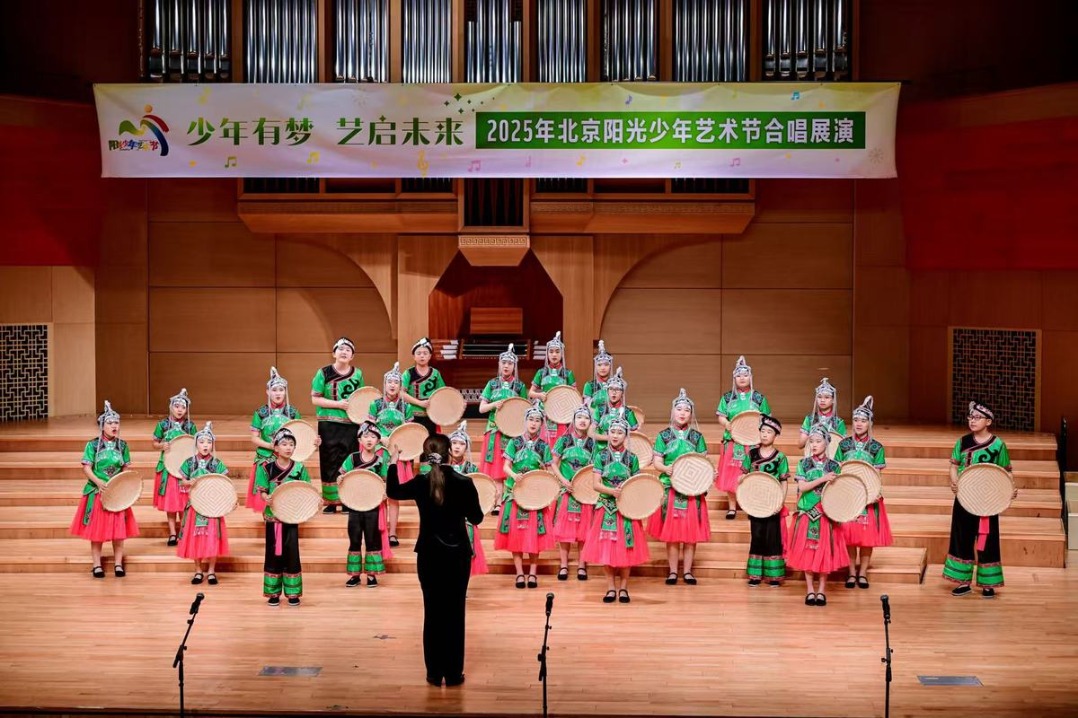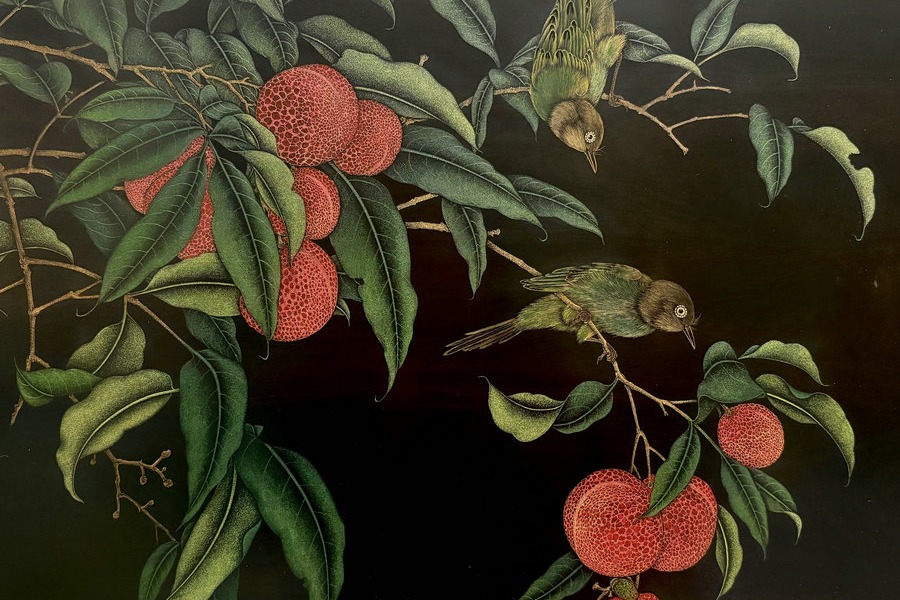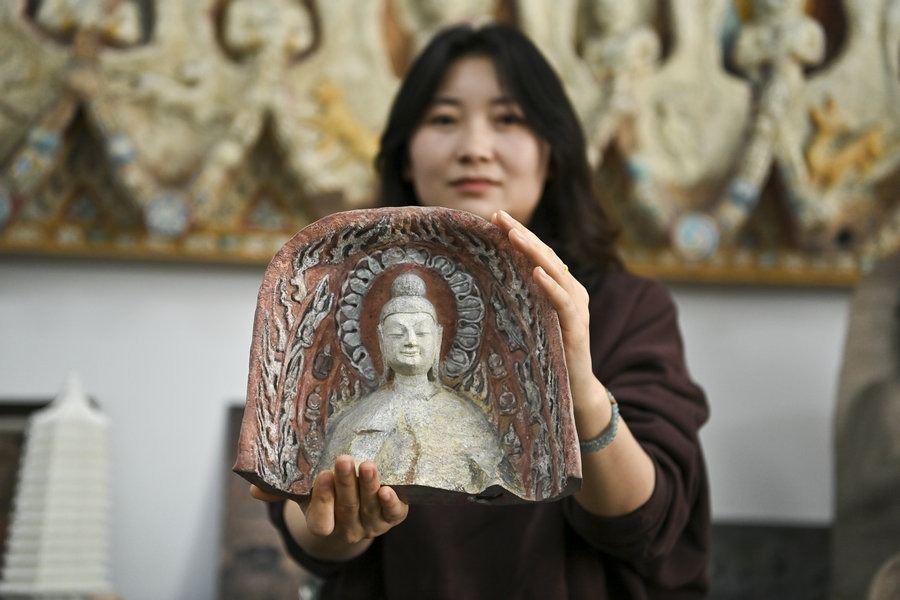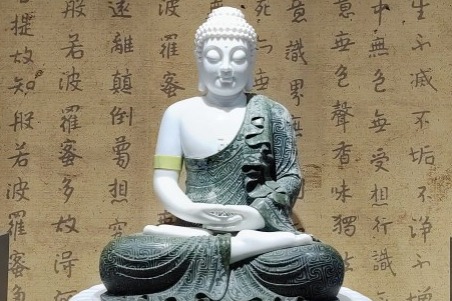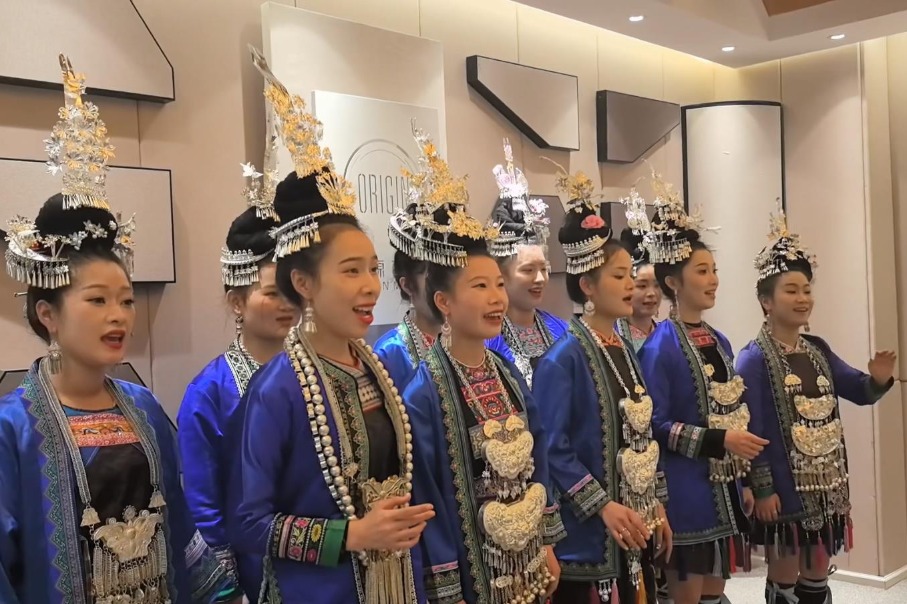Steeped in history, Chinese tea crosses borders

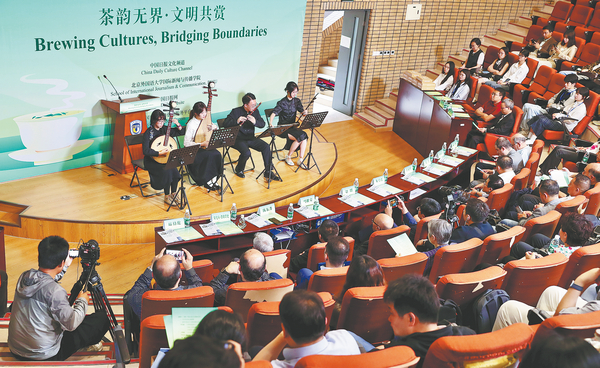
Rich traditions brew meaningful connections between cultures, economies, emotions and nature, Li Yingxue reports.
Gary Sigley, a professor from Australia at Beijing Foreign Studies University, says his mother, in her 90s, still enjoys several cups of English-style black tea with milk and sugar each day.
A few years ago, he made her a cup of Pu'er tea from Yunnan province, which marked her first encounter with Chinese tea. "I placed a piece of sun-dried Pu'er on her palm," he recalls. "At that moment, an elderly Australian woman was holding a cup of fresh tea grown on an ancient tree in Yunnan. I suddenly realized that tea is a medium of friendship between different nations and peoples.
"Tea is a cultural treasure shared with the world by the Chinese people. Tea culture is not just a knowledge system about how to brew or taste tea, it is a philosophy of life. In a single cup of tea, we share not just flavor, but also knowledge, emotions and wisdom."
Sigley recently attended a cultural event themed "Brewing Cultures, Bridging Boundaries", co-hosted by China Daily and Beijing Foreign Studies University, to celebrate the upcoming International Tea Day on Wednesday — a global occasion that honors the rich traditions, cultural significance, and economic impact of tea.


